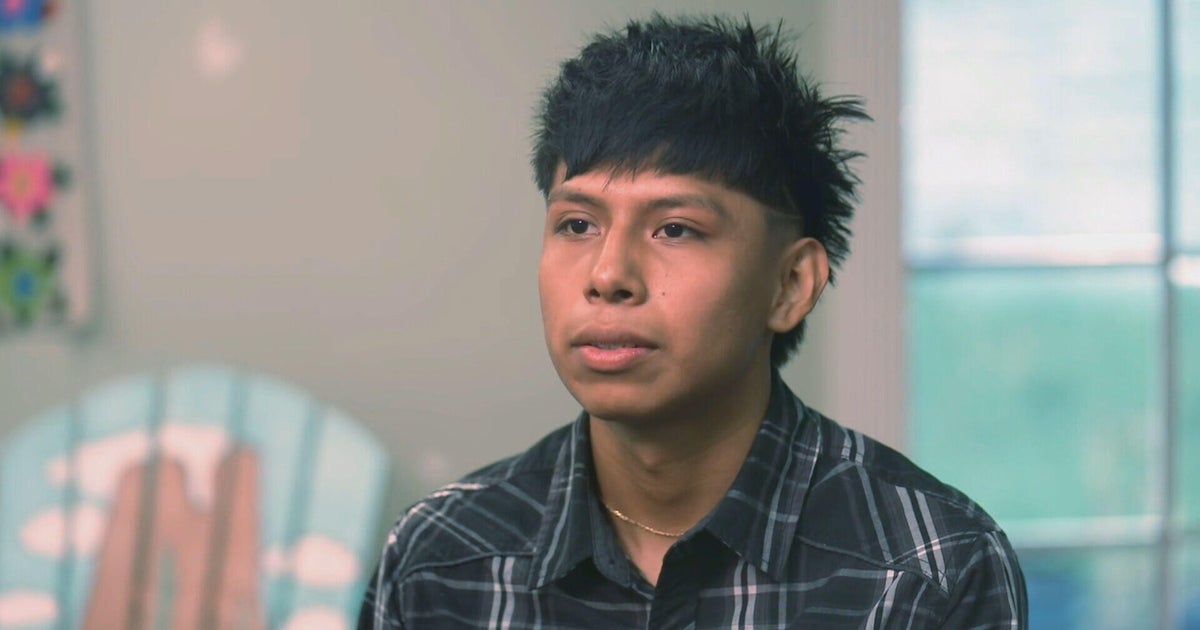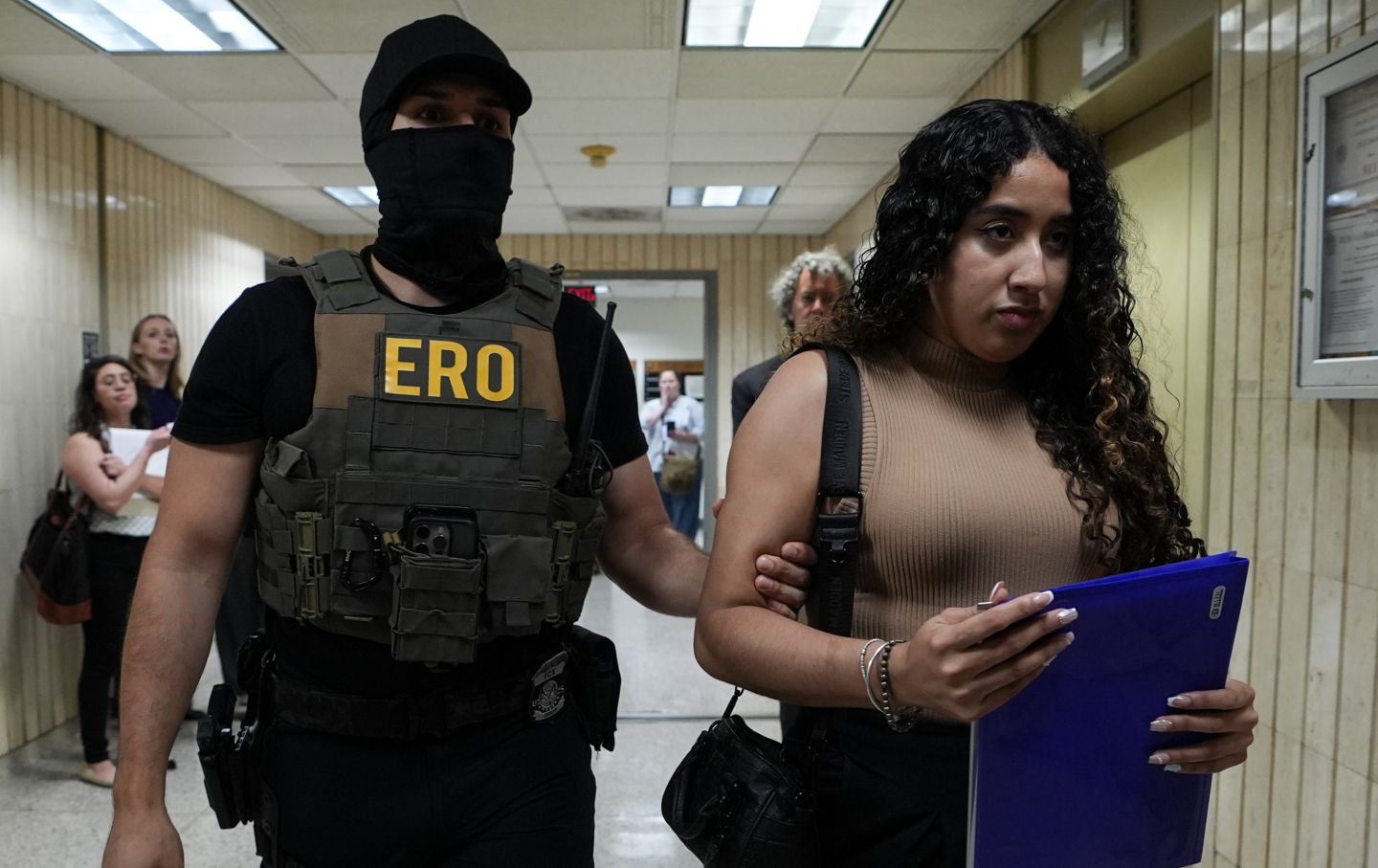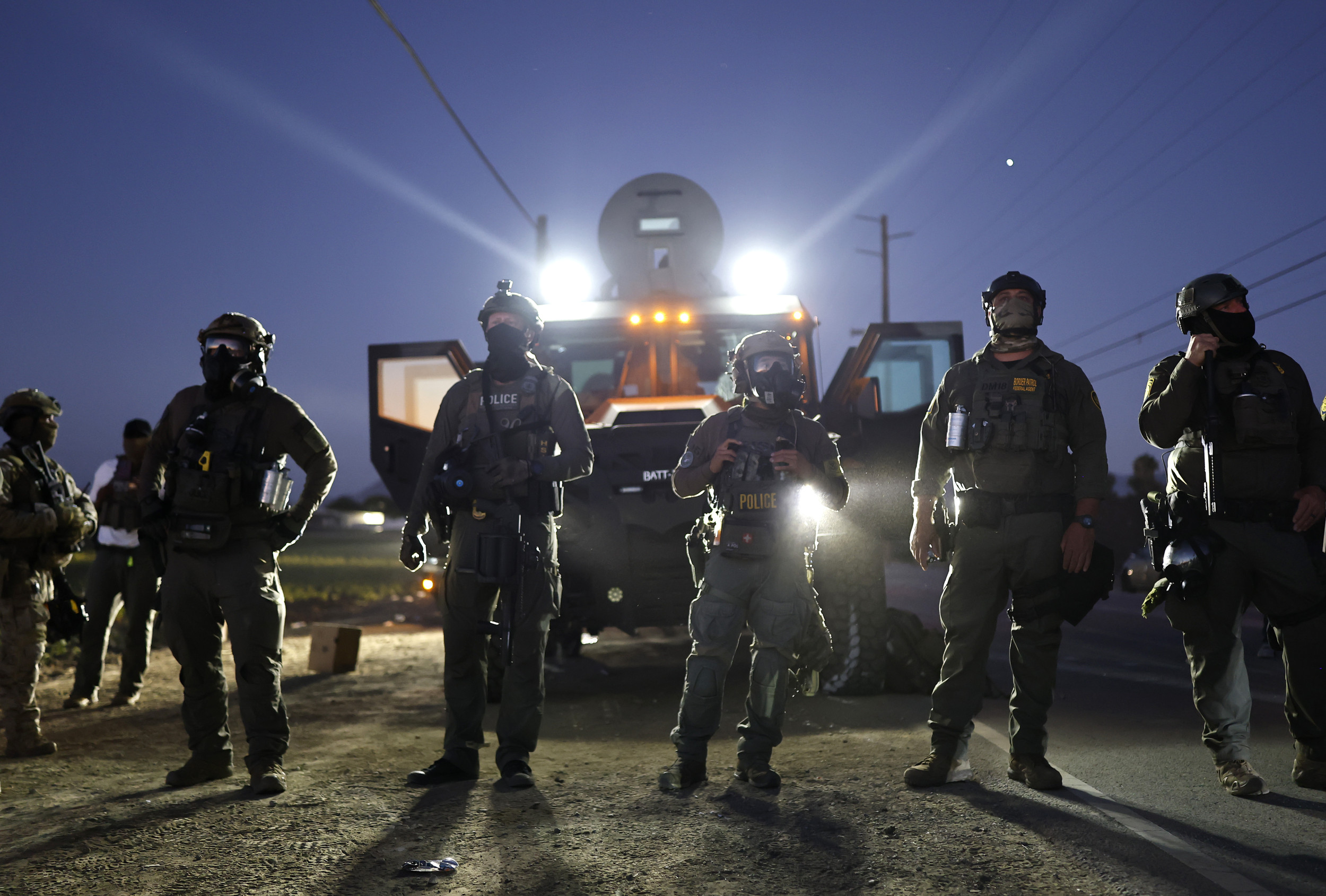In June, ICE Enforcement and Removal Operations (ERO) Houston arrested five undocumented migrants with extensive criminal histories. Among them was 56-year-old Cuban national Adermis Wilson-Gonzalez, convicted in 2003 for hijacking a plane from Cuba to Florida. He was taken into custody on June 29.
On June 13, ICE arrested Arnulfo Olivares Cervantes, a 47-year-old Mexican national and former Mexicles gang member. Cervantes had entered the U.S. illegally six times and faced convictions for attempted murder, drug trafficking, and evading arrest.
Luis Pablo Vasquez-Estolano, 29, also from Mexico, was arrested on June 10. He had been deported six times and held convictions for homicide, aggravated robbery, and drug possession.
Jose Meza, 40, was arrested on June 24. ICE reported Meza had entered the U.S. illegally four times and was convicted of sexual assault of a minor and theft.
On June 23, ICE detained 51-year-old Javier Escobar Gonzalez, who had prior convictions for sexual indecency with a minor, criminal trespass with a deadly weapon, and unauthorized firearm use.
ICE officials say the arrests reflect ongoing efforts to remove individuals deemed threats to public safety.
ICE Enforcement and Removal Operations (ERO) in Houston is pushing back against criticism of its recent immigration enforcement actions, with acting Field Office Director Gabriel Martinez praising agents for their work in removing individuals deemed threats to public safety. In a statement, Martinez said ICE officers are “targeting dangerous criminal aliens” and highlighted recent deportations across Southeast Texas as evidence of their commitment.
The agency reported the removal of individuals with criminal convictions, including child predators and gang members, as part of its broader strategy to restore what it calls integrity to the immigration system. Martinez emphasized that ICE’s mission is being undermined by “false and malicious rumors,” but insisted that agents remain focused on protecting communities.
The statement follows a series of high-profile deportations and increased scrutiny of ICE’s tactics, particularly in Houston, where arrests have surged in recent months.
Dozens of demonstrators gathered outside the Portland International Jetport on Saturday to protest Avelo Airlines’ partnership with U.S. Immigration and Customs Enforcement. The airline has been conducting deportation flights out of Arizona since May, prompting backlash from immigration advocates and local residents.
Protesters expressed concern that Avelo, which recently began offering commercial flights between Portland and New Haven, Connecticut, is receiving public incentives despite its federal contract. Organizers called for a boycott and urged city officials to reconsider support for the airline.
Avelo maintains that its ICE-related operations are limited to Arizona and are not connected to its Portland service. However, critics argue that any business involved in deportation efforts should not benefit from public resources.
Los Angeles Mayor Karen Bass announced a new initiative to provide direct cash assistance to immigrants impacted by the Trump administration’s ongoing immigration raids.
The funds will be distributed as cash cards valued at “a couple hundred” dollars each and is expected to become available within the next week, Bass said
Newsweek has contacted Bass’ office for comment via email outside of office hours.
President Donald Trump has vowed to carry out the largest mass deportation operation in U.S. history to address illegal immigration and border security. However, the policy has sparked concerns about its potential effects on the economy. The GOP’s flagship immigration policy under Trump is causing people to avoid going to work amid fears over workplace raids.
California has become one of the key battleground states for immigration enforcement after President Trump directed ICE to increase operations in sanctuary states.
California State Senator María Elena Durazo (D-Los Angeles) issued a forceful statement Friday condemning the treatment of immigrant children detained in Los Angeles, following the release of a video showing two dozen minors handcuffed and led through a federal building. Durazo called the footage “a moral failure of the highest order,” denouncing the practice as cruel and fundamentally un-American.
The senator urged the Trump administration to end what she described as barbaric tactics and emphasized that no child should be shackled or separated from their parents. She praised U.S. District Judge Frimpong’s recent ruling that blocked federal immigration raids based on racial profiling and ordered access to legal counsel for detainees.
Durazo criticized the White House’s decision to appeal the ruling, warning that it signals a disregard for constitutional protections. She reaffirmed her commitment to defending immigrant families and called for policies rooted in compassion and justice.
Florida State Rep. Fentrice Driskell criticized the Alligator Alcatraz migrant detention facility during an interview on CNN, calling the site “inhumane” and a misuse of taxpayer funds. Driskell described overcrowded conditions, sweltering heat, and limited access to sanitation and legal counsel. She said detainees are housed in cages with three toilets per pod and shackled during medical screenings.
Driskell also claimed that some Republican lawmakers privately expressed discomfort with the facility, saying it did not reflect what they had envisioned when supporting immigration enforcement. She questioned the $450 million price tag and suggested contractors with ties to the DeSantis administration may be benefiting.
The facility, located in the Florida Everglades, has drawn criticism from tribal leaders, environmental groups, and immigrant advocates. Driskell warned that the center’s conditions and lack of oversight could have lasting consequences for Florida communities.
Undocumented farm workers say they feel “hunted like animals” as President Donald Trump’s administration intensifies immigration enforcement across U.S. farms, The Guardian reported. ICE raids have disrupted livelihoods, forced workers into hiding, and sparked protests, including one in Ventura County where a worker died after falling from a greenhouse during a raid.
Trump has proposed letting farmers oversee immigration enforcement on their properties, a move critics say strips workers of legal protections and dignity. Labor advocates warn the policy amounts to coercion, with workers forced to rely on employers to avoid deportation.
Despite mixed signals from the White House, the administration has raised ICE arrest quotas and reversed earlier directives to avoid targeting agricultural sites. Officials say the crackdown is necessary to secure the food supply and remove undocumented labor, while critics argue it threatens both human rights and economic stability.
Farmworkers and organizers say the raids have traumatized communities, disrupted families, and risked food shortages. With undocumented workers making up an estimated 40 percent of the U.S. farm labor force, advocates warn that continued enforcement could reverberate far beyond the fields.
Federal immigration agents detained a California woman outside a Home Depot during a workplace raid and used excessive force during her arrest, a family friend told Newsweek.
Alejandra Anleu, a 22-year-old immigrant from Guatemala, was arrested by U.S. Border Patrol agents outside the store located at San Fernando and 26th Street in Los Angeles on Monday, June 30, 2025.
She had been working there when immigration enforcers detained her.
Joyce Sanchez, a 28-year-old U.S. citizen and family friend, told Newsweek: “They used excessive force on a young woman, which was unnecessary.”
A spokesperson for the Department of Homeland Security (DHS) told Newsweek: “FALSE. On June 30, U.S. Border Patrol encountered Alejandra Anleu, an illegal alien from Guatemala. During the encounter, Anleu freely admitted to being an illegal alien and she was placed under arrest without any injuries reported.”
Footage obtained by Newsweek shows federal agents leading her away without incident.
Federal officials on Sunday defended President Donald Trump’s intensifying deportation campaign, including a controversial raid at two California cannabis farms that left one worker dead and sparked widespread protests. Homeland Security Secretary Kristi Noem and Trump’s border czar Tom Homan said the administration would appeal a federal judge’s ruling that temporarily blocked immigration detentions based on racial profiling and restricted access to legal counsel for detainees.
“We will appeal, and we will win,” Noem said on Fox News Sunday, denying that the administration used discriminatory tactics. Homan added on CNN that physical characteristics could be one factor in establishing reasonable suspicion during enforcement actions.
The July 10 raids in Camarillo and Carpinteria resulted in 361 arrests, including 14 migrant minors, according to DHS. Protesters clashed with federal agents, and Democratic Rep. Salud Carbajal said he witnessed officers firing smoke canisters and projectiles into a crowd of civilians. ICE later accused Carbajal of sharing an agent’s business card with demonstrators.
United Farm Workers confirmed that one farmworker died from injuries sustained during the raid. Senator Alex Padilla, who was forcibly removed from a Noem press conference in June, condemned the administration’s tactics. “It’s causing ICE to get more aggressive, more cruel, more extreme, and these are the results,” Padilla said. “It’s people dying”.
Chris Landry, a longtime New Hampshire resident and green card holder, was denied re-entry into the United States after a family vacation in Canada, sparking personal and political upheaval. Landry, 46, has lived in the U.S. since he was three years old and was traveling with three of his five American-born children when he was stopped at the border in Holton, Maine.
“They pulled me aside and started questioning me about my past convictions in New Hampshire,” Landry told NBC News from New Brunswick, Canada. His record includes a 2006 marijuana possession charge and a 2007 suspended license violation—both resolved with fines and no further offenses since.
Despite his legal permanent resident status, border agents denied him entry and warned he could be detained if he returned. “I never expected that I wouldn’t be able to go back home,” Landry said. “It was scary. I felt like I was being treated like a criminal.”
Landry now faces an uncertain future, requiring an immigration judge’s approval to return. The experience has shaken his political beliefs. Once a vocal supporter of Donald Trump’s immigration policies, Landry said, “I feel differently now. I’ve been torn from my family. My life has been disregarded completely”.
U.S. Customs and Border Protection defended the decision, stating that “possessing a green card is a privilege, not a right,” and that prior convictions can trigger mandatory detention or additional scrutiny at ports of entry.
Landry has reached out to New Hampshire’s congressional delegation for help, while his children prepare to return to the U.S. without him.
A GoFundMe campaign for Jaime Alanis, a 57-year-old California farmworker who died Saturday from injuries sustained in a 30-foot fall during an Immigration and Customs Enforcement (ICE) raid, has raised over $150,000 as of Sunday evening.
Newsweek has reached out to Alanis’ niece, Yesenia Duran, for comment via GoFundMe on Sunday.
Alanis’ death is among the first reported during an ICE raid under President Donald Trump‘s second term. The administration has spearheaded a major immigration crackdown, vowing to carry out the largest mass deportation in U.S. history. The initiative has seen an intensification of ICE raids across the country.
Congress has allocated funding for tens of thousands of additional detention beds in the current tax bill, as the Department of Homeland Security (DHS) moves to expand detention capacity and ramp up arrests.
A federal judge on Friday concluded that immigration agents had been “unlawfully” arresting suspected illegal immigrants in Los Angeles and six surrounding counties, marking the latest legal clashes between California and the Trump administration over immigration enforcement. District Judge Maame Ewusi-Mensah Frimpong imposed two temporary restraining orders (TRO) banning law enforcement from detaining suspected illegal migrants in the area without reasonable suspicion and insisting that those arrested must have access to legal counsel.
Jaime Alanis, a 57-year-old farmworker, died Saturday from injuries sustained during a chaotic federal immigration raid at Glass House Farms in Camarillo, California. Alanis fell roughly 30 feet from a greenhouse roof while reportedly fleeing agents, according to family members. He had worked at the farm for a decade and was the sole provider for his wife and daughter in Mexico.
The Department of Homeland Security confirmed it executed criminal search warrants at the cannabis facility and a second site in Carpinteria, arresting approximately 200 undocumented individuals and identifying at least 10 migrant children on-site. DHS stated Alanis was not in custody and was not being pursued when he climbed the roof and fell.
The United Farm Workers union, which does not represent workers at the raided farm, condemned the operation, calling it “violent and cruel” and warning of its impact on food supply chains and immigrant families.
Protests erupted during the raid, with demonstrators clashing with agents in military gear. Tear gas and smoke forced crowds to disperse. Four U.S. citizens were arrested for allegedly assaulting officers, and the FBI is offering a $50,000 reward for information about a suspect who fired a gun at agents.
Glass House Farms said it complied with federal warrants and is assisting detained workers with legal support. The company denied knowingly violating hiring practices or employing minors.
Democratic lawmakers condemned Florida’s newly opened Everglades immigration detention center after touring the facility Saturday, describing it as overcrowded, unsanitary, and infested with insects. “There are really disturbing, vile conditions, and this place needs to be shut the hell down,” said Rep. Debbie Wasserman Schultz, who joined other Democrats in criticizing the 3,000-bed site dubbed “Alligator Alcatraz.”
Republicans on the same tour disputed those claims, with State Sen. Blaise Ingoglia calling the facility “well-run” and “clean.” Sen. Jay Collins added that the center was “functioning well” and equipped with backup generators and dietary tracking systems.
The tour followed an earlier attempt by Democrats to access the site, which was denied. Lawmakers have since filed a lawsuit against the DeSantis administration, alleging obstruction of oversight authority.
The detention center, built in days on a remote airstrip, is part of President Donald Trump’s push to expand migrant detention capacity to 100,000 beds. While officials say detainees have access to medical care, air conditioning, and legal services, advocates and relatives report worm-infested food, overflowing toilets, and limited hygiene access.
Homeland Security Secretary Kristi Noem said any issues “have been addressed” and suggested other states may adopt similar models. The facility remains controversial, with critics calling it a political stunt and supporters touting its efficiency.
Vice President JD Vance encountered heckling and widespread protests during a family visit to Disneyland in Anaheim, California, over the weekend.
Hundreds of demonstrators gathered outside the theme park, the Los Angeles Times reported, voicing their disapproval of Vance’s presence amid ongoing Immigration and Customs Enforcement (ICE) raids across California.
Jane Fleming Kleeb, a vice chair of the Democratic National Committee (DNC) and chair of the Nebraska Democratic Party, later confronted Vance inside the park while the Republican walked with his child. Vance’s visit disrupted park operations as security measures increased, resulting in prolonged wait times and temporary ride closures for other guests, according to The Independent.
Newsweek has contacted Vance’s team via email outside of normal office hours for comment.









